Content from the Brookings Doha Center is now archived. In September 2021, after 14 years of impactful partnership, Brookings and the Brookings Doha Center announced that they were ending their affiliation. The Brookings Doha Center is now the Middle East Council on Global Affairs, a separate public policy institution based in Qatar.
Europe has only itself to blame for its declining influence over the interlocking crises in its neighborhood. From Syria to Libya, Europe’s immediate neighborhood is undergoing a transformation, the result of which will not only shape the regional and domestic political order of the neighborhood for generations to come, but that of Europe as well.
Yet the European Union seems oblivious to the significance of this transformation. Even when the EU or major European powers attempt to devise a policy, it is usually short-sighted and premised on ill-conceived assumptions. From Syria to Libya, such shortcomings of European policy have been on full display for years.
To start with, its diagnosis of the crisis (or set of crises) is faulty. It essentially reduces the crises in its neighborhood to that of terrorism and refugees. In other words, it has advanced a counter-terror and counter-refugee policy, but not a Libya or Syria policy to achieve sustainable, long-term objectives in these two countries. In both instances, instead of leading, Europe took a back seat and spent most of its energy reacting to the strategies of other powers. It failed to advance a workable political vision of its own to deal with these conflicts.
Concepts such as political legitimacy and good governance, much less democratic change and human rights, have almost evaporated from the European lexicon. In their place are an empty and nebulous quest for stability, which inherently translates to Europe condoning of full-fledged authoritarianism in its neighborhood. This is especially misguided given that the 2011 Arab uprisings shattered the viability of the authoritarian-stability model, and the return of protests in Algeria, Sudan, Iraq, Lebanon, and other countries are doing so again. Even more tragically, Europeans find it much easier to sign up to, and throw money at, morally questionable refugee deals to prevent people’s movement toward Europe rather than to devise a coherent long-term neighborhood policy.
This makes Europe more of a bystander in the transformation of its neighborhood. In fact, the picture that emerged from Moscow last Monday, in which Russia and Turkey tried to hatch out a ceasefire deal for Libya, illustrated both Turkey and Russia’s growing role in shaping Europe’s neighborhood, as well as Europe’s increasing impotence, if not irrelevance, when it comes to the Middle East’s deepening crises.
The resulting European diplomatic activism led by Germany, notwithstanding French-Italian divisions over support for Field Marshal Khalifa Haftar, was a reaction to Turkish – Russian initiatives. Yet being reactive or irrelevant is a policy position that Europe can ill-afford.
Whatever happens on the southern shores of the Mediterranean will shape the politics on the northern shores of the Mediterranean. For better or worse, the Middle East and Europe are deeply interconnected. If Europe does not invest in the transformation of the Middle East, events in the region will shape Europe’s public scene and politics. Given that refugees and extremism–products of the collapse of the domestic political orders in the Middle East–have contributed directly to the rise of populism and political extremism in Europe, this is already happening.
The Libyan crisis, in particular, provides a textbook example of what is wrong with Europe’s policy toward the neighborhood. The upcoming Berlin process and conference set for January 19 will be a litmus test that will reveal whether the West in general, and Europe in particular, are up for the task.
Europe cannot ignore Turkey and Russia, given their crucial roles in the Libyan crisis. Economic and financial interests, power competition with other regional rivals such as Egypt and the UAE, and the drive to break out of its isolation in the Eastern Mediterranean motivate Turkey’s pro-active strategy on Libya. Likewise, financial and energy interests, the quest for an expanded regional and international role, and a growing presence in the Eastern Mediterranean constitute core elements of Russia’s strategy.
However, a new Astana process with the same logic that shaped the course of the Syrian imbroglio is a bad idea for Libya. The Astana process, and for that matter the Russia-designed Sochi process as well, restructured the civil war in Syria in a way that benefited the regime and bankrupted the opposition. As evidenced by the ongoing humanitarian crisis in Idlib, the de-escalation arrangements agreed upon during this process did little to actually de-escalate the conflict. Instead, they served as a temporary lull in the conflict, before giving way to re-escalation until the opposition surrendered. These two processes, thus, facilitated and eased the regime’s victory in Syria, while the same processes de-legitimized the opposition and effectively reduced them into proxy fighters.
Europe needs to make sure that Russia will not be able to do the same in Libya on behalf of Haftar. It’s important to remember that two key lessons shaped the nature of Russian military intervention in Syria: first, the Western military intervention in Libya in 2011, and second, the quagmire that resulted from the Soviet invasion of Afghanistan. In Libya, Russia believes that it was tricked by the West, whom it accuses of misusing the UN Security Council resolution 1973 for regime overthrow. Consequently, Russia decided that it would not allow a similar regime-change scenario in Syria. But Libya should not be the price for Russia’s revenge against the West.
Compared to the situation in Syria, Moscow and Ankara have relatively limited influence in Libya, as was made clear when Haftar snubbed the Russians and left Moscow without signing the ceasefire deal. Rather, the Libyan theatre has multiple influential regional and international players. Many of these actors have the means and capacity to undermine the efforts of others. Therefore, for any new initiative to be sustainable, it has to include major players, including the countries that are deeply affected by developments in Libya. In this respect, inviting Algeria to the Berlin conference was a positive development while not inviting Tunisia, a neighboring country that has been impacted by the negative externalities resulting from the Libyan imbroglio, is a shortcoming.
Likewise, neither Moscow nor the Berlin process should solely aim to freeze the conflict in its current form. To be clear, the freezing of the conflict, which is the necessary first step to facilitate the political process, should not pave the ground for the legitimization of the status-quo. Instead, as part of the political process, the goal should be to withdraw forces to pre-April battle lines, when Haftar launched a bloody campaign to capture Tripoli from the UN-recognized government. Not doing so would send a clear message to all warlords and militia leaders that they are better off creating “facts on the ground” which would then be legitimized through international processes. If exercised effectively, the international actors have the necessary leverage over the warring parties in Libya to force them to make major compromises and concessions. Related to this, the Berlin process should insist that participants pledge to withdraw their mercenaries from Libya, which have thus far only aggravated the conflict. Overall, Europe should do better in balancing its interests and values in Libya. Thus far, it is losing on both accounts.
The Brookings Institution is committed to quality, independence, and impact.
We are supported by a diverse array of funders. In line with our values and policies, each Brookings publication represents the sole views of its author(s).
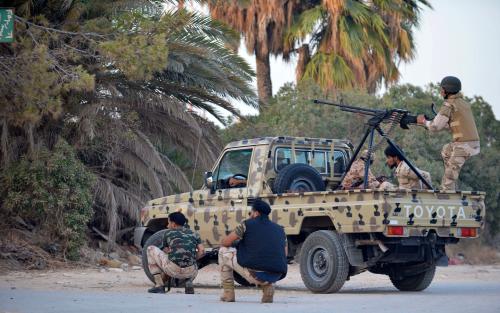
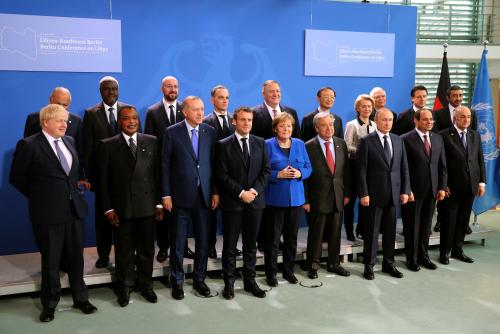


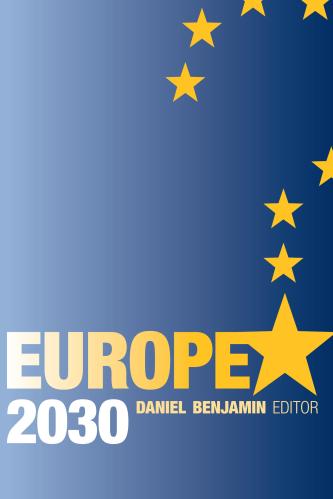


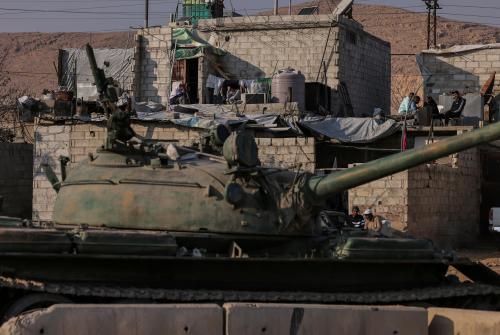
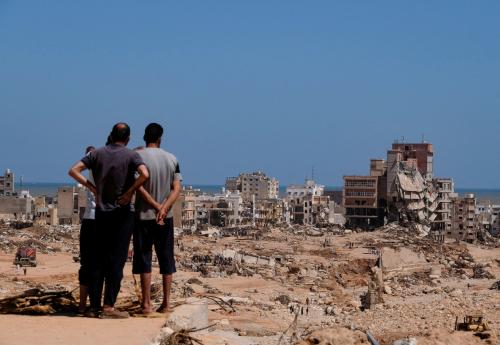

Commentary
Op-edIs Europe up for the task in Libya?
January 18, 2020